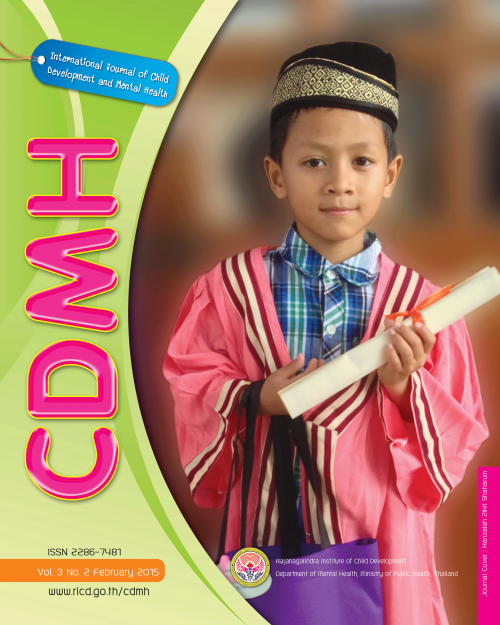Perspectives of Counselors on the Mental Health Needs of Intermediate Level Public School Children: Implications for a Preventive Mental Health Program
Main Article Content
Abstract
Abstract
This paper explored the mental health
concerns of intermediate level public school
children (Grades 4-6) from the perspectives of the
school guidance counselors. The objective of this
research was to know and understand the
issues of the students in the public schools, as
it will have an impact on the development of a
preventive mental health program for this target
group. The perspectives of the guidance counselors
were deemed as very important because they
are the ones who directly deal and help with the
non-academic concerns of students in the school
setting. In the conduct of this study, the following
were utilized: focused group discussion with
counselors/guidance teachers; data from two
school divisions in Metro Manila on the concerns
of Grades 4-6 students for school year 2013-2014;
and a devised needs assessment questionnaire for
guidance counselors that quantitatively measured
their perception of the frequency and severity of
the students’ mental health concerns. Findings
showed that from the perspectives of the guidance
counselors, bullying was the most frequent mental
health concern reported by Grades 4-6 students.
On the other hand, absenteeism and family
problems had deeper and more negative effects
on the students. In order to have a more holistic
and grounded mental health program for
intermediate level students, it was recommended
to also conduct a needs assessment for Grades
4-6 students and their parents because these
two groups are important stakeholders in the
development of the mental health program.
Interventions that will be provided must also
involve not only the children but the parents,
guidance counselors, and teachers as well.
Article Details
The authors retain copyright and permit the journal the copyright of first publication
Articles, once having passed the review process and accepted for publication in the CDMH Journal, are copyrighted under the CDMH Journal, Department of Mental Health, Ministry of Public Health. Please be aware distribution of CDMH Journal content for commercial purposes without permission is expressly prohibited. However, distribution with intent to educate, advocate, or spread awareness within the general public and research communities is permitted and encouraged with the understanding that the CDMH Journal Editorial Board do not hold jurisdiction or liability for any accompanying comments, text, or information from third parties, either in favor for or against the original article’s assertions, conclusions, methodology, or content.


